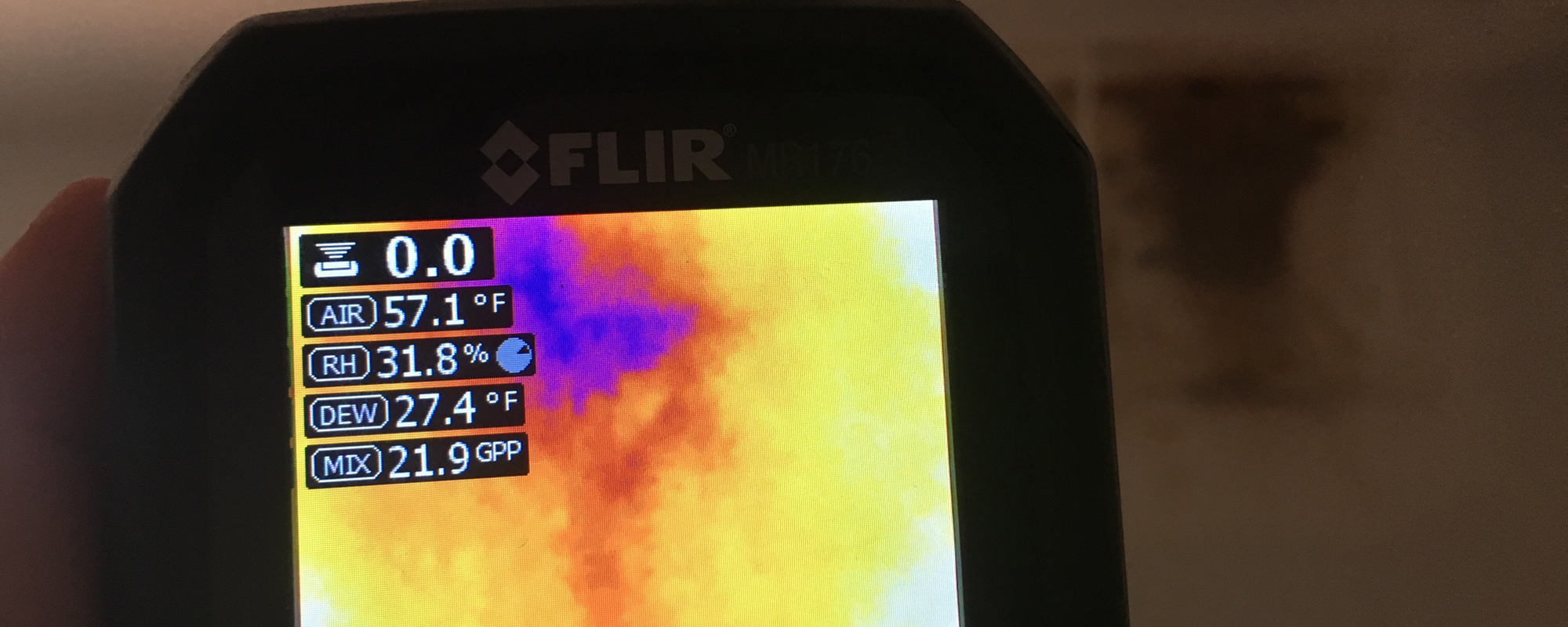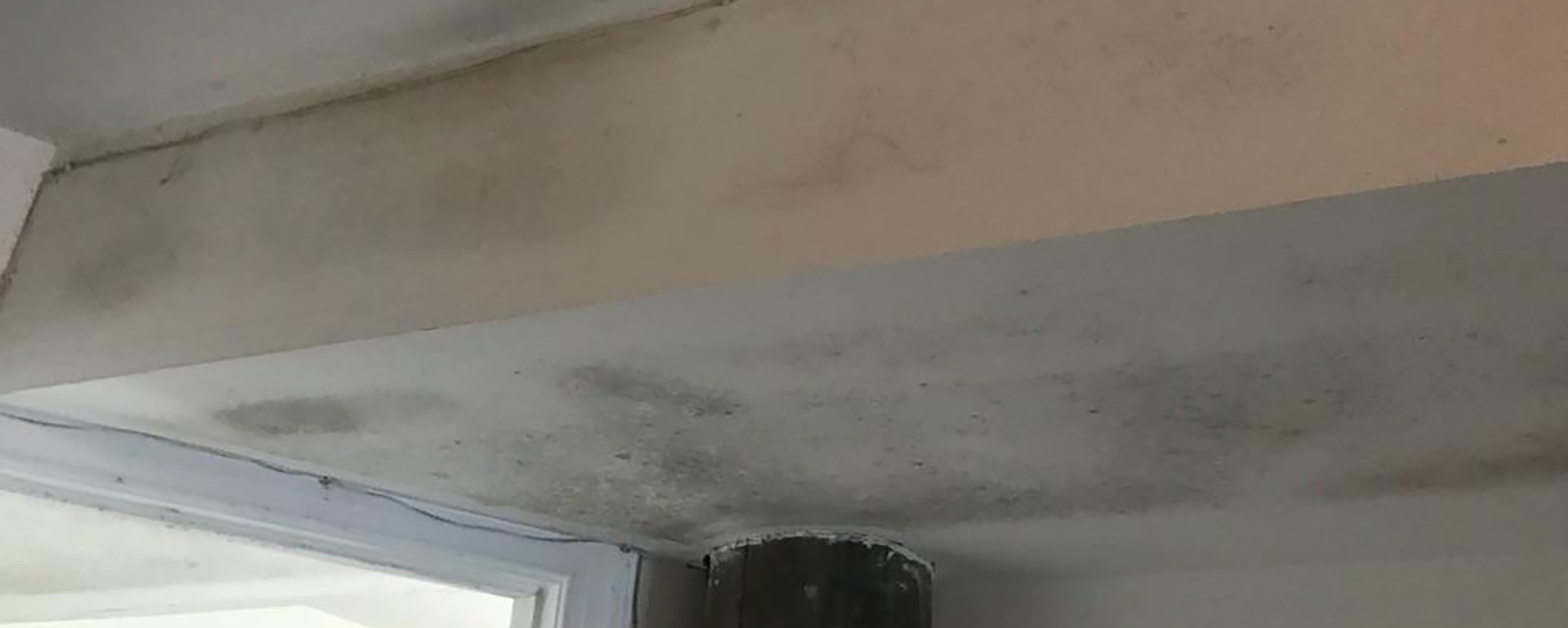
June marks the start of summer in South Jersey. This is the perfect time to assess your home for any moisture control opportunities in preparation for the summer humidity to come. South Jersey summers are especially damp and humid, which can be the perfect environment for problems like mold. If you know your home tends to suffer from indoor humidity problems during the warmer months, get ahead of the game this year and implement some summer humidity and mold prevention. Summertime isn’t for dealing with mold, it is for barbecues and outdoor activities.
Summer Humidity In South Jersey Homes
As we all know, South Jersey summers can be particularly unbearable due to the extreme summer humidity. High humidity can make the air stifling and make us regret ever wanting winter to end. As humidity rises with the summer days to come, it will becoming increasingly difficult to keep your indoor space cool and dry. In addition to physical discomfort, elevated indoor humidity can directly cause other maintenance issues in your home.
Humidity is the percentage of water vapors in the air around us. When temperatures rise, the warmer air can hold more water molecules. This allows for the spike in humidity levels during the summer months. The excess moisture in the air slows down the cooling process of evaporation from the human body, so we tend to feel especially hot in humid spaces. You see, our body’s cooling system is rooted in releasing moisture through sweating and sweat evaporation. When we sweat, the sweat evaporates into the air and creates a cooling effect for the body. When we have high humidity, the air is already saturated with water vapors, leaving no room for our sweat vapors. This slows our sweat evaporation, reducing the cooling sensation, and leaves us feeling hotter for a longer period of time.
When the summer heat and humidity becomes too much to bare, we dream of nothing more than to seek refuge in a cool, dry and conditioned space. Ideally, your indoor humidity levels should should always remain between 30% – 50%. When summer humidity levels begin to exceed 50% indoors, this can lead to problems.
Elevated indoor humidity…
- forces your air conditioner to work overtime and drives up that electric bill
- can support damaging fungal growth in your indoor spaces
- can lead to moisture buildup in your porous building materials and cause property damage and structural damage
- causes general discomfort because our bodies cannot release heat and cool down efficiently
- increases the likelihood of condensation on your cool surfaces (i.e: duct work) that can lead to mold growth and water damage
- compromise indoor air quality because dampness can breed mold, allergens, bacteria other indoor contaminates
- can damage your belongings: clothing, wood furniture, wood instruments, books and other porous goods
Elevated indoor humidity over time can be extremely problematic; however, with a few summer dehumidification tips, you can control your indoor humidity levels, prevent moisture related problems and kick summer humidity in the butt.
Summer Dehumidification & Summer Humidity Control In New Jersey Homes
Effective summer humidity control can create a comfortable living space, increase energy efficiency, prevent mold growth and prevent other damage to your building materials. It all comes down to the right combination of the following:
- Pulling the moisture out of the air
- Allowing the moist air to escape and cycle in dry, fresh air
- Conducting routine home maintenance to ensure that everything is in good condition and not further contributing to moisture build up.
Installing a properly rated dehumidifier: A lot of South Jersey homeowners solely rely on their air conditioning system to reduce the humidity of a space. Dehumidifiers are specifically designed to pull moisture from the air in a space and maintain humidity levels below 50%. By strategically installing a properly rated dehumidifier in your humid spaces, you can take some of the workload off your air conditioning system. You will be able to maintain optimum relative humidity levels and allow your AC system to operate more efficiently.
Increase Indoor Air Circulation: Stagnant, moist air is uncomfortable, leads to moisture buildup in your porous materials and can encourage indoor mold growth. Air circulation allows new, fresh air to cycle out the warm, moist air. You should try to keep your interior doors open as much as possible to allow air flow throughout all your interior spaces. Take time to de-clutter every few months. Excess clutter obstructs air flow and forces moist air to remain stagnant.
Ventilation & Exhaust Fans: Strategic ventilation can go a long way in preventing moisture buildup from summer humidity. Proper home ventilation can encourage air circulation and prevent humidity related problems. Use exhaust fans, ceilings fans and other methods of ventilation when appropriate. South Jersey homeowners should pay special attention to areas of the home that are are generally more damp than others like kitchens and bathrooms. It is important to always run exhaust fans during showers, baths and while cooking. It is important to wipe up any water spills immediately.
Routine Maintenance: It is important to conduct regular checks throughout the home to make sure everything is in working order and in good condition– Assess for any signs of potential damage, look for leaks, change out HVAC filters, etc. Unaddressed maintenance issues can introduce additional moisture to your indoor environment and only worsen any existing summer humidity issues.
Mold Prevention During Humid South Jersey Summers
Get ahead of the summer humidity and mold this year. Take this time to assess your New Jersey home for areas that might be vulnerable to moisture buildup or have a history of humidity issues. Before it gets too hot and the humidity spikes with the summer season, you should conduct any outstanding maintenance checks, make sure that you have sufficient indoor air circulation, assess ventilation systems and consider installing a dehumidifier where it might be appropriate and helpful. Summer humidity trapped indoors can create the ideal breeding ground for mold development. Mold growth and the underlying moisture buildup in your porous building materials will lead to significant property damage, diminish your property value, and potentially put you and your family’s health at risk.




